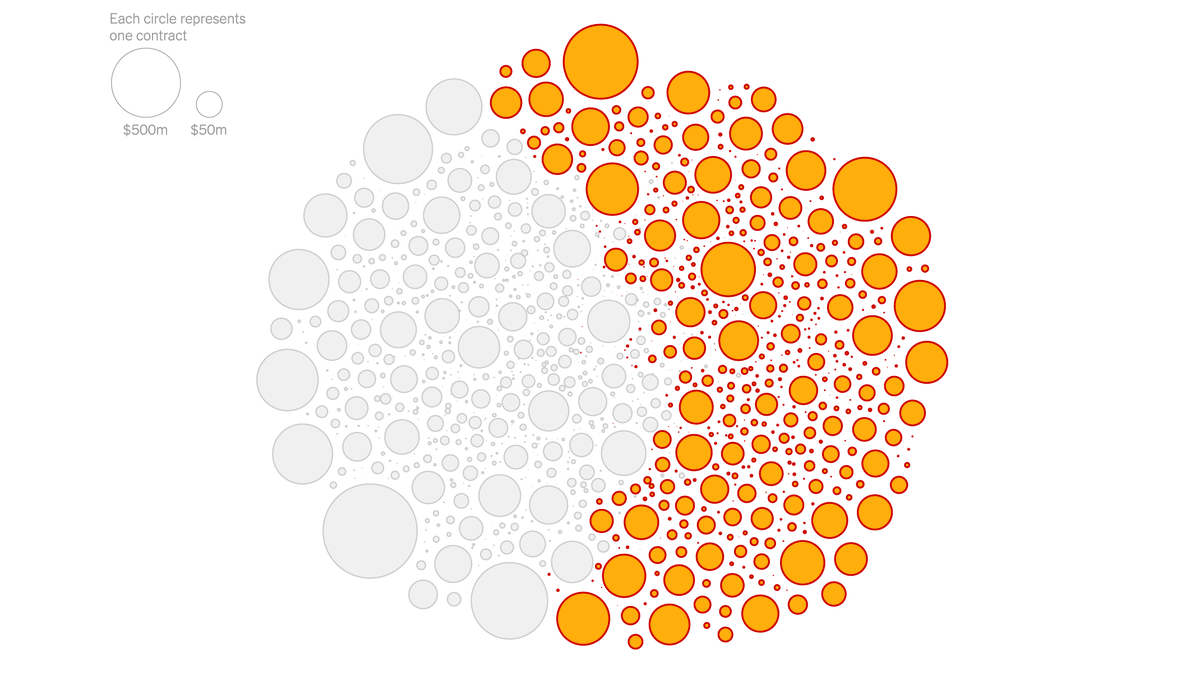
The sports economy has been ravaged by the pandemic. The absence of live fans alone has forced the thousands of people who once put on games at these venues out of work. nyti.ms/2JYkWIZ
Ticket agents and hot dog vendors and bartenders and janitors lost their livelihoods this year. It is an economic toll being felt across every major pro sports town in the country. nyti.ms/2JYkWIZ 

To assess the impact of losses so far on the industry’s bottom line and workers, The New York Times zoomed in on one place — Wisconsin. On the first weekend of October, canceled events cost an estimated $46 million in lost revenue. nyti.ms/2JYkWIZ 

Direct losses from canceled sports events lead to indirect losses in related industries and further losses because of changes in household spending, according to analysis prepared for The Times. nyti.ms/2JYkWIZ 

See how the absence of live fans at sports events has forced the thousands of people out of work in Wisconsin and how it has affected the entire sports landscape. nyti.ms/2JYkWIZ
• • •
Missing some Tweet in this thread? You can try to
force a refresh












